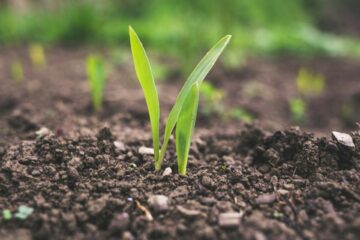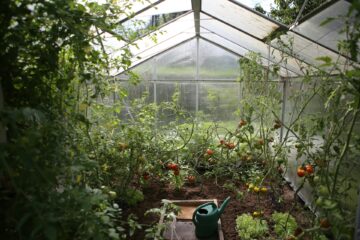Gardening is often thought of as a relaxing hobby. But like anything else, gardening can be challenging if you don’t know how to do it right. Here are a few gardening tips for beginners to get you started on the path toward having an amazing garden:
Staking is your friend.
If you’ve ever seen someone try to grow tomatoes in a pot, you know how important it is to stake plants that need support. Stakes can be made from wood, metal or plastic and can come in any shape or size–even decorative ones! If you’re going to be growing your tomatoes in an ornamental container rather than an open garden bed, look for stakes that will complement the style of your container. Some people like tall skinny wooden stakes that look like bamboo; others prefer shorter metal ones with decorative curls at the top (like these).
Staking isn’t just for tomatoes: many other types of fruits and vegetables benefit from being staked as well!
Don’t plant too close to the sidewalk or driveway.
- Don’t plant too close to the sidewalk or driveway.
If you’re new to gardening, one of the most important gardening tips for beginners to keep in mind is that your plants need room to grow. Planting them too close together will cause them damage and can even lead to issues with your sidewalk or driveway if they get too big! Make sure that at least three feet separates each plant from its neighbours on all sides–and if possible, give each plant four feet of space so they have room for their roots and don’t compete with one another for nutrients in the soil.
Plant the right amount of plants.
Plant the right amount of plants.
Planting too many plants will crowd the space, while planting too few will leave you with bare patches. It’s best to have a balanced and pleasing look in your garden by planting the right amount. Plants should be spaced so that they can grow to their full potential and not fight for nutrients or water from other nearby plants.
Make a plan before you start planting, not after.
It’s important to plan your garden before you start planting. Planning before you plant will help you avoid mistakes, save time and money, and get the most out of your garden. Here are some tips for planning:
- Make a list of what plants and flowers you want in each area of the yard. Keep in mind that some plants need more sun than others; if there’s not enough sunlight where they’ll be growing, then consider moving them somewhere else (or adding more shade from trees).
- Decide how big each section should be based on how much room they take up in proportion to other plants around them – this could mean putting tall bushes next to shorter ones so everything looks balanced when viewed from above!
Leave some room for mulch and additional compost.
- Leave some room for mulch and additional compost to provide your plants with essential food and nutrients.
- Mulch is a great way to keep your garden looking tidy, but it also has other benefits that can help your plants thrive. Mulching slows down the growth of weeds by preventing them from getting sunlight and water. This makes it easier for you to maintain your garden because weeds won’t be able to grow as easily or at all! If you’re worried about bugs eating up the leaves on your plants, try using some insecticidal soap instead of pesticides; this will keep them away without harming anything else in your yard.
Get a soil test before you start planting, and consider adding additional nutrients if needed.
If you’re new to gardening, there are a few things that can make a big difference in how successful your garden is. The first is getting a soil test before you start planting. This will tell you what nutrients your soil is missing and how much of each nutrient it needs, so that when it comes time for planting, all you have to do is add the right amount of fertiliser (or compost). Don’t wait until after the plants are already growing–get this done early!
Keep your garden looking great by following these tips!
If you want your garden to look great and be productive, there are a few things you should do. First of all, make sure that you have enough space for everything. If not, consider purchasing more soil or planting in pots instead.
Secondly, add some fertiliser if needed (you’ll know this because the plants won’t grow as well). You can buy fertiliser at any gardening store or online!
Finally, add mulch around each plant so that soil stays moist and cool–this will help keep bugs away from them too!
Gardening tips for beginners conclusion
Well, there you have it! Six gardening tips for beginners. We hope these ideas will help you keep your garden looking great. If you’re just starting out and don’t know where to begin, try picking one or two of these tips that seem most relevant to your situation. If nothing else helps but reading this post did – then we’ve done our job!


